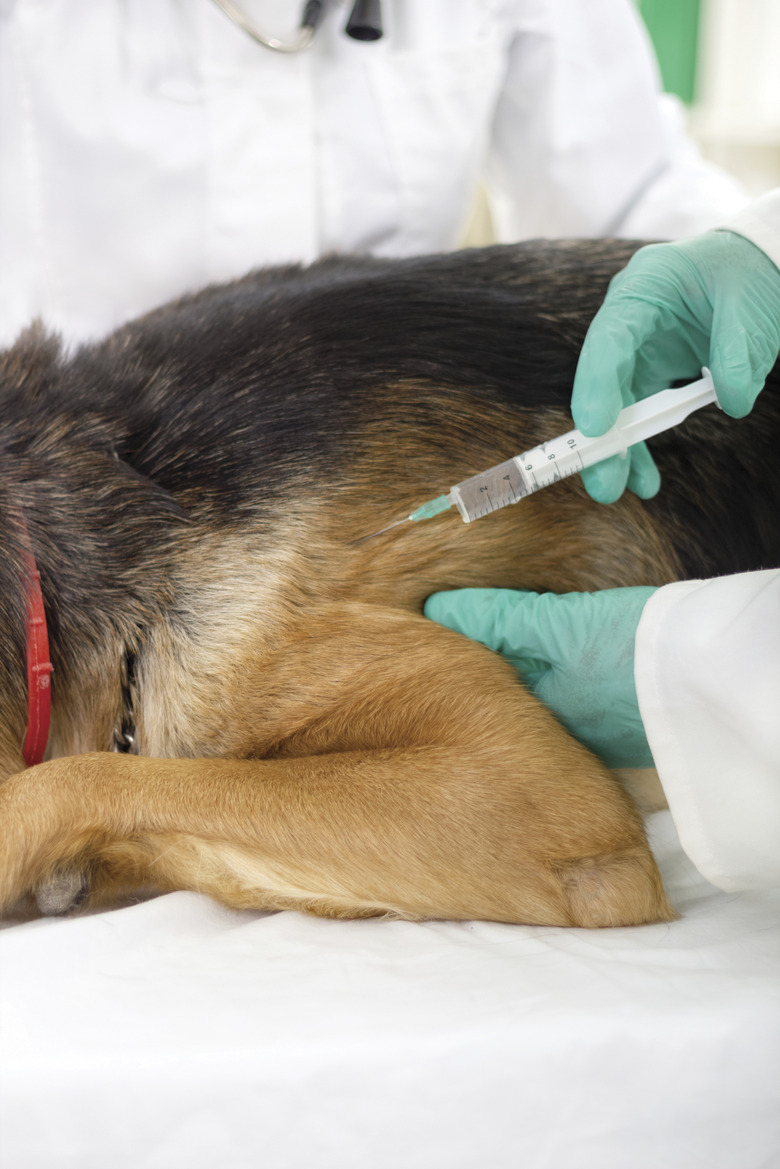How To Treat A Dog That Ate Rat Poison
Rat poison or rodenticides are very potent — they can be fatal to dogs. If you suspect your dog ate rat poison or he has access to it, call your veterinarian immediately to start treatment and enable a full recovery. Your dog will need to go to a veterinary hospital for treatment to rid him of the poison or reduce the effects of the rodenticide in his body.
Rodenticides and Symptoms
Rodenticides and Symptoms
Bromethalin is a rat poison in several brands. Symptoms that follow ingestion include lack of coordination, odd behavior, depression, paralysis, tremors, seizures and coma. Phosphides cause seizures, tremors, diarrhea, stomach pain and blood in the stool or vomit. Cholecalciferol causes kidney failure, with an increase in thirst and urination, weakness, bad breath, dehydration and blood in the stool. Anticoagulants are a common ingredient in rodenticides that do not allow blood clotting and cause exercise intolerance, coughing, difficulty in breathing and coughing up or vomiting blood.
Inducing Vomiting
Inducing Vomiting
Call your veterinarian immediately if you believe your dog ate rat poison. If your dog is in the vicinity of poison, you will likely be instructed to induce vomiting to expel some of the poison before it enters your dog's digestive tract. Dr. James W. Randolph, a small animal veterinarian at Animal General Hospital in Long Beach, MS. recommends administering 1 mL of 3 percent hydrogen peroxide per pound of body weight by mouth. If your dog doesn't vomit within 5 minutes, repeat the procedure — but never give any dog more than 45 mL at a time.
Veterinary Hospital
Veterinary Hospital
Rush your canine friend to a veterinary hospital. Take some of the rat poison with you in a secure bag to help the vet determine the exact method of treatment your pet will need. Treatment for poisoning includes several processes including inducing vomiting and giving your pet activated charcoal to minimize the toxicity in your dog's system. Your dog may need IV fluids, oxygen support and vitamin K1. Your pooch will likely spend 24 hours or more under careful supervision to administer his treatments. Your dog may receive an anti-coagulant injection and oral anti-coagulants for 30 days or more.
Ongoing Care
Ongoing Care
Veterinarians perform a blood prothrombin time test to examine the effects of coagulants in dogs. You will need to take your dog back for several blood PT tests to determine when the anti-coagulant therapy is no longer needed.
Always check with your veterinarian before changing your pet's diet, medication, or physical activity routines. This information is not a substitute for a vet's opinion.
